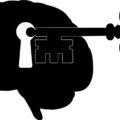Women with chronic pain, whether it’s due to endometriosis, an undiagnosed cause, or an autoimmune disorder, have heard it all before. I’ve found that people, no matter how well-intentioned, tend to give bad advice or say slightly hurtful things simply because they don’t know what you’re dealing with. Here are a few remarks I’ve heard more often than I’d like:
Well, you don’t look sick! While that’s somewhat nice to hear (nobody really wants to look sick), it dismisses the level of discomfort the person you care about may be in. I may look fine, but there’s some suffering going on here, and it would be nice if you didn’t wave it away. I may look fine, but I’m not going to be running a marathon anytime soon, so please be supportive.
You’ve lost so much weight! You look great! I’m not going to address the myriad gender and body issues that factor into this remark, but if you know someone has been ill for a long time, don’t mention their weight loss. They probably didn’t lose it in a healthy way. One of my friends would frequently be approached with this comment, followed by, “You could be a model now! How did you do it?” and she would respond, “Severe pancreatitis.” Please don’t embarrass yourself or the individual in question; it’s not your concern. Trust me, if I lost this weight in Crossfit, you would know by now.
You just want attention. No, that’s what support groups are for. If I’m letting you know about my chronic pain, it’s to explain why I can’t move those boxes, or attend your birthday party, or why I may want to stay seated today. I feel that friends and coworkers should know what I’m going through so I don’t look lazy, or they don’t get overly concerned when I suddenly have trouble walking or standing.
Ooh, I’d love some time off work. This remark, when directed at your mention of sick leave, is a real doozy. Please don’t confuse time taken off work for illness as a vacation. Unless you’ve lost a job to prolonged illness, you probably don’t know the sadness and stress of wanting to work and not being well enough to do so. Also, some women struggle with taking long weekends for illness, worry about losing their jobs, and must hope their bosses are understanding of their condition. As for me, I did not just take a seven month vacation; there were no margaritas and laughs at the pool. There were lots of meals eaten in bed and lots of Netflix, but if you factor in the multiple diagnostic procedures, surgeries, medications with disgusting side effects, blood tests and constant pain, it wouldn’t be a vacation you’d want to take.
With a better attitude/better diet, you’d get better in no time! This, I think, can be chalked up to wishful thinking. It sure would be nice if being a vegan and reading a ton of Deepak Chopra would make the pain and fatigue magically vanish, but it’s not going to happen that way. You can be sure that if someone is dealing with chronic pain and fatigue, they’ve consulted specialists about the proper diet, maybe going through several different diets. If it’s been going on for months, you can be sure they’ve read about emotional coping mechanisms or started therapy to deal with the depression and anxiety that often go hand in hand with chronic pain. Trying to shame someone into acting like they’re fine is pretty horrible, if you think about it. Some days will be better than others, but people are allowed to be down in the dumps occasionally.
Just suck it up, you’re not dying. People may not believe you, but you already are doing your best. If it takes all your strength just to make a sandwich and take a shower, and you just did make a sandwich and take a shower, then you are indeed sucking it up. I think people, especially caretakers, get frustrated watching someone experienced prolonged pain or discomfort that they can do nothing to change. This frustration with the illness itself may get projected onto you. Remember: You didn’t ask to get sick, and it’s not your fault. If you’re a caretaker and you find yourself getting angry, take a break, go for a walk, get out of the house for a bit, maybe consider a support group. Chronic pain is hard on everybody, not just the patient.
You’d feel better if you got out of the house/ got out of bed/ went running more. Yes, I’m sure I would, but this completely ignores the fact that I’m experiencing pain and fatigue. All I talk about and fantasize about is doing just that: going about daily life in a normal, active way. Sadly, my body won’t allow this, and that’s why I’m mostly housebound and mostly bedridden. When I do push myself and go against my better judgment, I end up being half-dragged, half-carried out of the supermarket to the car. Or, even worse, I faint in public, and it’s very humiliating. Don’t push someone to spend more energy than they have or ignore their pain; it will end in tears.
If people are less than supportive, you can suggest more helpful things to say. It takes guts, but you could say: “I’m letting you know that I’m in pain so you understand why I’m moving slowly today.” For friends or a partner: “I’m not feeling very well, and I’d like some support. Maybe we could plan an activity to do together when I’m feeling a bit better.”
I’ve learned that some people become downright hostile when confronted with spending time around someone who is in a lot of pain. Feel free to cut these people out of your life; they are afraid of illness because they fear experiencing it themselves and aren’t good at practicing empathy. Others don’t understand illness because they haven’t had friends or family live through it, and while they may be trying to help, they say insensitive things. Try not to let it get you down!















Loved this article. I’m not a lady, but I have been dealing with chronic pain for several years(nearly a decade)…
It’s so hard dealing with insensitivity…especially when it’s family 🙁